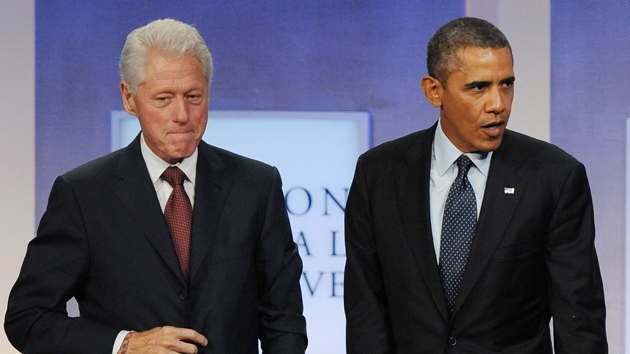
Kristin Callahan/Ace Pictures/Zuma
Sean McElwee urges Democrats to find a new way to appeal to the working class:
For decades, thinkers on the left have wondered why the working class regularly votes against its own interests….Thomas Frank argued that social issues obscure economic motives, and indeed the most salient non-economic one has always been race, at least in this country….Nixon’s “law and order campaign” played on racial fears, as did Reagan’s denunciation of “welfare queens.” Republicans played at race to win solid majorities for decades while actively working against the interests of the majority of Americans. The left has much to learn about this strategy. It needs to fundamentally re-align Americans around an issue with a deep and latent importance: the environment.
I don’t really want to pick on McElwee here, but I guess I’m feeling a little peevish this morning. Why is it that the working class often votes against its own economic interests? Well, let’s compare the sales pitches of the Republican and Democratic parties when it comes to pocketbook issues:
- Republicans: We will lower your taxes.
- Democrats: We, um, support policies that encourage a fairer distribution of growth and….and….working man….party of FDR….um….
There are two problems with the Democratic approach. First, it’s too abstract to appeal to anyone. Second, it’s not true anyway. Democrats simply don’t consistently support concrete policies that help the broad working and middle classes. Half of them voted for the bankruptcy bill of 2005. They’ve done virtually nothing to stem the growth of monopolies and next to nothing to improve consumer protection in visible ways. They don’t do anything for labor. They’re soft on protecting Social Security. They bailed out the banks but refused to bail out underwater homeowners. Hell, they can’t even agree to kill the carried interest loophole, a populist favorite if ever there was one.
Sure, Democrats do plenty for the poor. They support increases in the EITC and the minimum wage. They support Medicaid expansion. They passed Obamacare. They support pre-K for vulnerable populations. They expanded CHIP. But virtually none of this really benefits the working or middle classes except at the margins.
Now McElwee wants to use environmentalism to appeal to the working class. I’m all for that. But you don’t have to play 11-dimensional chess to figure out how Republicans will respond. They’ll say that Democrats want to raise your taxes. They’ll say Democrats want to take away your plastic bags. They’ll say Democrats want to make us all drive tiny cars or take the train everywhere. In coal country they’ll say Democrats want to take away your jobs.
And then Democrats will wonder yet again why a big chunk of the working class votes for Republicans. It’s a stumper all right.
Apologies for being peevish. But honestly, Democrats have done virtually nothing for the middle class for three decades now. They’re nearly as reliant on the business community for campaign funding as Republicans. Can we all stop pretending that there’s some deep mystery about why lots of working and middle class voters figure there are no real economic differences between the parties, so they might as well vote on social issues instead?















